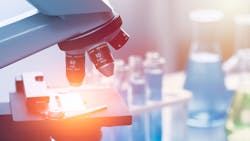Vaccine Candidate Ready for Large-Scale Testing, Says Moderna
Moderna, Inc. announced June 11 that its foremost COVID-19 vaccine candidate is ready to advance to Phase 3 of human testing after achieving positive results in earlier clinical trials. While those results have not yet been released, the announcement signals Moderna’s optimism that the results were satisfactory enough to move on. According to Moderna, the Phase 3 study will involve 30,000 people, some of whom will receive a placebo. The rest will receive a dose of mRNA-1273, the candidate vaccine. The study will take place in July, and will be administered in cooperation with the National Institute of Allergy and Infectious Diseases.
Phase 3 clinical testing, according to the CDC’s website, tests candidate drugs in wide-scale trials for efficacy and safety using thousands of subjects. Once Phase 3 trials are completed, vaccine candidates move on to regulatory review and approval, manufacturing, and quality control. This sometimes involves a fourth phase of clinical testing that can take place after deployment.
Moderna is only one of many pharmaceutical companies currently putting candidate COVID-19 vaccines through clinical development. The World Health Organization keeps tabs on groups developing vaccines, and on June 9 the WHO reported that Moderna was one of three groups with a candidate in Phase 2 testing, along with two teams combining private companies with research institutions. AstraZeneca is developing its candidate vaccine in partnership with the University of Oxford, and CanSino Biological Inc. is developing its candidate alongside the Beijing Institute of Biotechnology.
World governments and pharmaceutical companies are paying close attention to the manufacturing hurdles that will come with producing, containing, and deploying a successful vaccine once it arrives. The United States’ Department of Health and Human Services has invested in measures to secure doses of candidate vaccines, including up to $1.2 billion for 300 million doses of AstraZeneca’s drug, and to improve supply chains for pharmaceutical companies making them. In response to concerns that the amount of doses being produced could stress the supply of glass medicinal vials, the Biomedical Advanced Research and Development Authority cut a $204 million deal with Corning, Inc. to help speed vial production. Emergent BioSolutions, Inc., announced July 11 it signed an $87 million deal to manufacture AstraZeneca’s vaccine candidate in the United States, improving the British pharmaceutical company’s reach.
Pharmaceutical companies and vaccine researchers worldwide are pushing hard to release a vaccine for the novel coronavirus as quickly as possible, and, in a best-case-scenario, may be on track for a stunning 12-month turnaround from sequenced virus to deployed vaccine.
Other notable manufacturers in the race to develop a workable vaccine for the novel coronavirus include Johnson & Johnson, Pfizer, and Merck & Co. Merck announced May 26 that it would purchase Themis Bioscience, which is currently working with the Institut Pasteur and the University of Pittsburgh on its own vaccine candidate: the WHO reports that that candidate is currently in pre-clinical stages of development. Johnson & Johnson’s candidate vaccine is currently slated to begin clinical trials in July, and Pfizer’s drug is currently in Phases 1 and 2.
About the Author
Ryan Secard
Associate Editor
Ryan Secard joined Endeavor B2B in 2020 as a news editor for IndustryWeek. He currently contributes to IW, American Machinist, Foundry Management & Technology, and Plant Services on breaking manufacturing news, new products, plant openings and closures, and labor issues in manufacturing.
